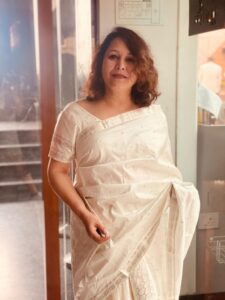
As we celebrate Women’s Day, we thought of bringing you a special interview with author Dr. Moushumi Kandali whose book ‘Black Magic Women’ (Penguin) is all set to be officially launched on March 8.
These stories from the North East are sure to touch the right chord as the author brings her characters out of Assam and places them in the mainstream, capturing their struggle to retain their inherent ‘Assameseness’ as they try to assimilate into the larger society.
The title story, “Black Magic Women”, is about how mainstream India perceives the Assamese women, who powered with the art of seduction and black magic, are made to endure social discrimination that can range from racial slurs to physical abuse. Juxtaposing two different eras, it is a historic-fictional re-telling of gender bias chronicled in the early 19th-century colonial reportage by a British officer.
Moushumi Kandali is a bilingual short story writer, art historian, and translator. Her stories have been published in several national and international literary magazines and edited anthologies such as “Oxford anthology of North East Writing”, “Penguin anthology of fifteen classic Assamese short stories”, “The Greatest Assamese Stories Ever Told” and many others. She has received several prestigious awards for her creative writing. Her stories have been translated into German, Korean, Spanish, and others along with several Indian languages.
Translator Parbina Rashid is a senior journalist with The Tribune, Chandigarh. She has translated a number of books from Assamese into English like “Painting of the Sky & Other Stories”, “Ballad of Kaziranga” and “If A River and Echoes from the Valley. Her latest translated story has been included in an anthology titled “The Greatest Assamese Stories Ever Told”. She has been associated with Sahitya Akademi, Delhi in the capacity of a translator and book editor. She hails from Guwahati and is currently based in Chandigarh.
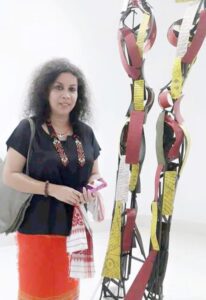
Walk us through your journey as a writer so far.
It started with a poem. It was published in a highly circulated literary Journal of North East when I was just sixteen. Now, it amuses me a little that in this poem I talked about existential angst and dilemma as if I had seen it all!! However, it was just two years after that my first short fiction titled “The Ferns in the Moonlight” appeared in the same magazine while I was a hostel boarder in Cotton College. Now, you can laugh me off as mystifying the whole process of writing but this story was written all of a sudden in the middle of the night while watching the dancing areca-nut trees amidst wind, heavy lightning and thunder. The scene looked so surreal! As if, I was in a trance and I had to put down those words somehow before the end of that ‘apocalypse’!
That’s how all these began a few years back. So far, I have four collections of Short stories, three research books on Art, Aesthetics and Culture, and two books of translation. I enjoyed translating The Diary of A Genius, the autobiography of Salvador Dali into Assamese, and the folk oral poems of the Miching tribes of Assam (Titled, Listen My Flower Bud !) into English. Besides, I regularly translate poems from English, Hindi and Bengali to Assamese and from Assamese to English. I enjoy juggling with these three generic worlds: the creative realm of Fiction, the critical non-fiction of academic research and yes, the challenging task of trans-creations in the tapestry of translations!
Tell us more about your recent book – The Black Magic Women.
It is a collection of ten short stories with different themes ranging from gender issues, internal migration and racial discrimination to the dynamics of the Culture Industry. And, of course, there are two love stories dedicated to all those “Who still believes in Love!” Hailing from the North-Eastern part of India, the Characters meet the multifarious facets of humanity within a setting in the ‘mainstream’ Indian metropolis even as they struggle to cope up with their circumstantial challenges while chasing their dreams. They are mostly from the lower or middle strata of society with roots in diverse indigenous culture groups and ‘different’ looks! Finally, it is about their lived experiences and marginalised existence, about suffering and survival at once. One or two stories are also about the turbulent times of Assam during the 80s and 90s with reflections on the days of insurgency and rebellion, violence and violations.
What is the story behind the book’s title?
The title story, ‘Black Magic Women’ is about how a certain section of the ‘mainstream’ India tends to perceive the Assamese/North Eastern women. They are seen as ‘different’, as ‘Others’ who are powered with the art of seduction! Very often, they are made to endure social discrimination, be it in the form of racial slurs or untold physical abuses. Juxtaposing two different eras, it is a historic-fictional retelling of gender bias chronicled in the early 19th-century colonial reportage by a British officer, who had hinted that all the Assamese women were Black Magic Women! He had categorically mentioned that “they all are believed to be enchantresses.” I came across this reportage in the archive section of the Indian Institute of Advanced Studies (IIAS), Shimla and it immediately triggered me to write this story later.
What makes you release this book on Women’s day?
Well, this was the Publisher’s decision and I absolutely loved the idea. The book is dedicated to ‘All the women of North East and the world’ and one of the central concerns is woven around Gender and the associated parochialism, discriminations and dogmas in an unfair social set-up which is still relevant and crucial in our time. So I think this was indeed the best choice!
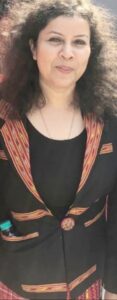 Name some phenomenal women of your life? Why?
Name some phenomenal women of your life? Why?
I have come across some really phenomenal women in my life. In my own home, I grew up seeing my mother and sisters fight their huge battles. Now let me just talk about my mother Torulata Kandali a bit. Since my childhood I have seen her reading serious literature taking some time out of all the non-ending domestic chores and then doing astounding critical commentaries, feeding and talking to birds and animals with utmost care as if they were our siblings, closing public tapes with running water, telling us to save water and then teaching us not to pluck even one leaf as such and specially after evening because trees and plants go off to sleep then!! I have also seen her lighting diyas on occasions such as Guru Nanak Jayanti, Buddha Purnima or Gandhi Jayanti because they were such noble preachers of humanity. And of course, a diya in the courtyard on the Indian Independence day in the name of all the martyrs. Now she is anguished for the families in war like situations both in Russia and Ukraine…. She has been doing all these in private for many decades on end, away from any camera or any social media posts and updates that we do so fervently nowadays!! I realize now that she is a born environmentalist, eco-critic, humanist, and an informed social commentator donning many more roles in one persona. Well, she was married off when she was just promoted to class VIII, because giving away girls before attaining puberty was the norm then in upper-class Brahmin households…
What happened afterwards, I have plans to chronicle in times to come.
What are some challenges that you had to face as a woman? How did you overcome the same?
There are many! One is to be accepted whenever you prefer to be somewhat non-normative and question the status quo! And then breaking the stereotypes at times… Well, I often love to cite a quote from Khaled Hosseini, “Like a compass needle that points north, a man’s accusing finger always finds a woman. Always!” I should not be generalizing here, not at all, because it is a statement by a very perceptive ‘man’ after all!
One final message for our readers.
Love is the ultimate word!

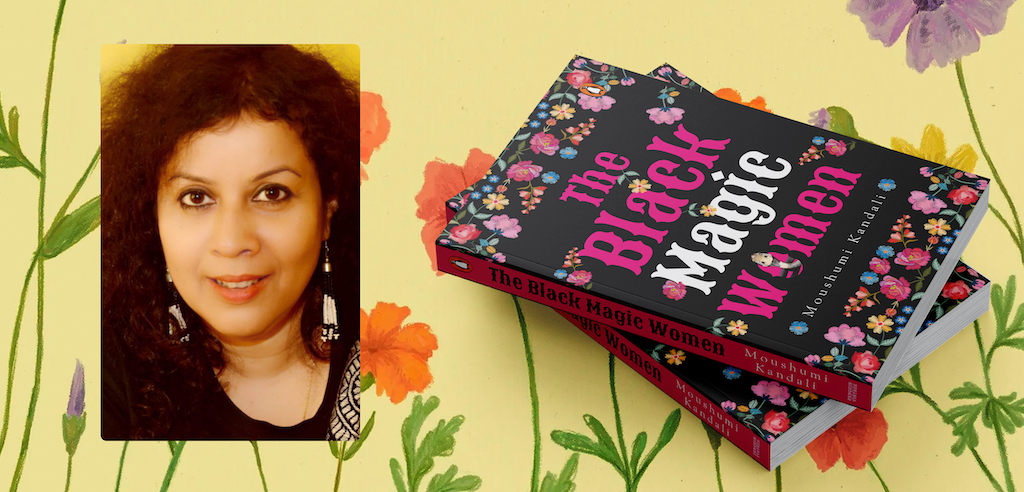
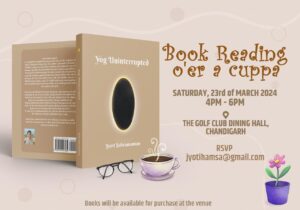
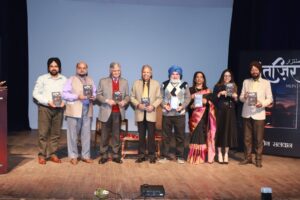
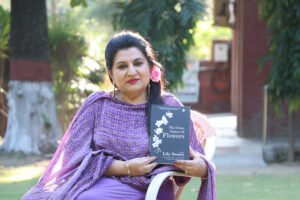
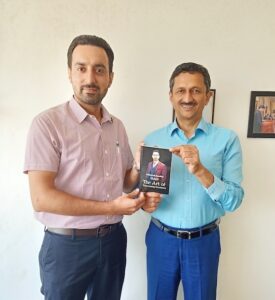
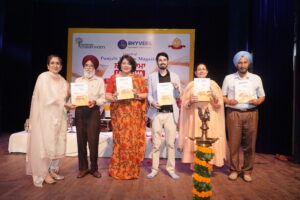

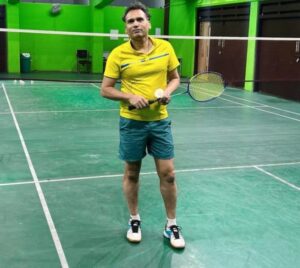


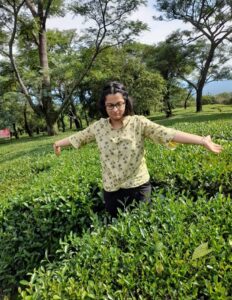
Comments are closed.